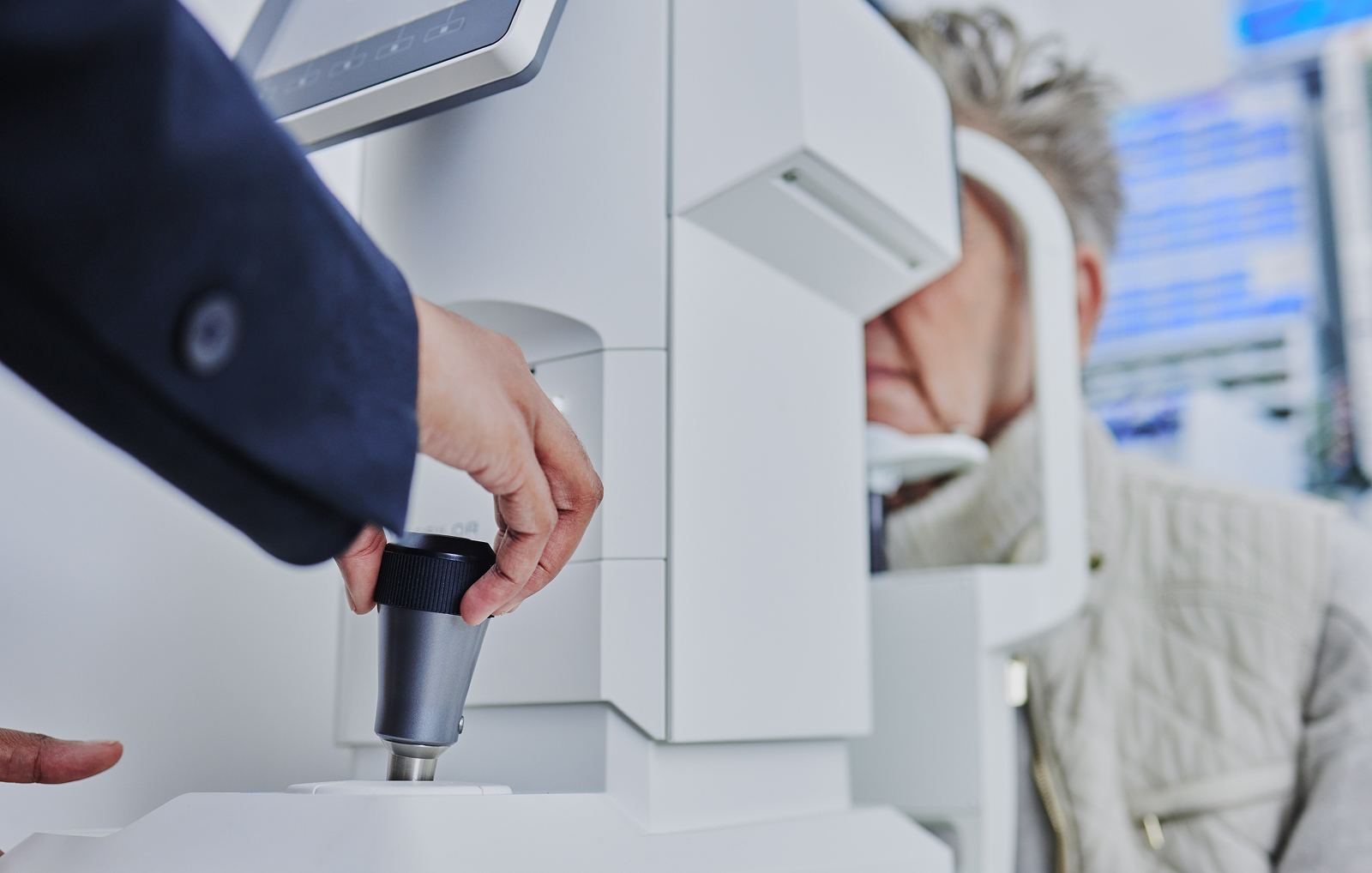
Retinal (or eye) screening is essential for managing type 2 diabetes.
This is because living with diabetes can mean you’re more at risk of developing eye problems. One of those is called diabetic retinopathy.
This can sometimes lead to sight loss if it’s not found early.
Retinal screening tests can find problems before they affect your sight. This is because diabetic retinopathy doesn’t show any symptoms in the early stages.
It can often become quite advanced before you start to notice it. This can make it more difficult to treat.
This eye examination is usually carried out every year. But be aware of any changes to your vision. If you notice anything, tell your healthcare professional straight away.
You can also call 111 for advice.
Retinal screening is different to a normal optician visit.
Your healthcare professional will look for signs of eye disease caused by your diabetes. After having a quick check of your eyes, the back of each eye will be photographed.
There will be a flash of light, but the camera won’t touch your eyes, and you shouldn’t experience any pain.
If you are given drops, your vision will be blurry afterwards. You will find this makes it difficult to focus on objects close to you, and things seem brighter than usual.
This can last up to six hours, so you might want to bring someone with you to take you home.
There are other things you can do to reduce your risk of serious complications.
Pay attention to any changes in your sight, such as floaters, dimmer vision or struggling to see in the dark.
Most importantly, keep on top of your blood sugar levels, blood pressure and cholesterol by being active and eating a healthy diet.
Disclaimer
This article is for educational purposes only and should not be used as a substitute for medical advice. Always speak to your doctor, nurse or pharmacist about your individual care. The information reflects NHS and NICE guidance at the time of publication.